Table of Content
▲
India is gearing up to initiate a series of infrastructure projects aimed at bolstering economic growth across the nation. Initiatives like the Navi Mumbai International Airport and Noida International Airport are poised to greatly enhance connectivity to these regions with key national and international hubs of trade and commerce. Furthermore, these projects are expected to create substantial employment prospects and stimulate growth in the construction sector. Join us as we delve into the pertinent details surrounding the impending infrastructure ventures in India and their influence on the real estate landscape.
Infrastructure stands as a key gauge of a nation's progress. India, as an evolving economy, has launched numerous infrastructure initiatives aimed at enhancing living standards and fostering employment opportunities. Allocating resources to projects encompassing roads, railways, airports, and ports fuels the nation's advancement, rendering it more contemporary and competitive on the global stage. Furthermore, these endeavors are anticipated to bolster the real estate sector, driving up demand for both commercial and residential properties. Continue reading to explore further insights into select upcoming infrastructure ventures in India detailed within this article.
Upcoming major infrastructure projects in India
Navi Mumbai International Airport
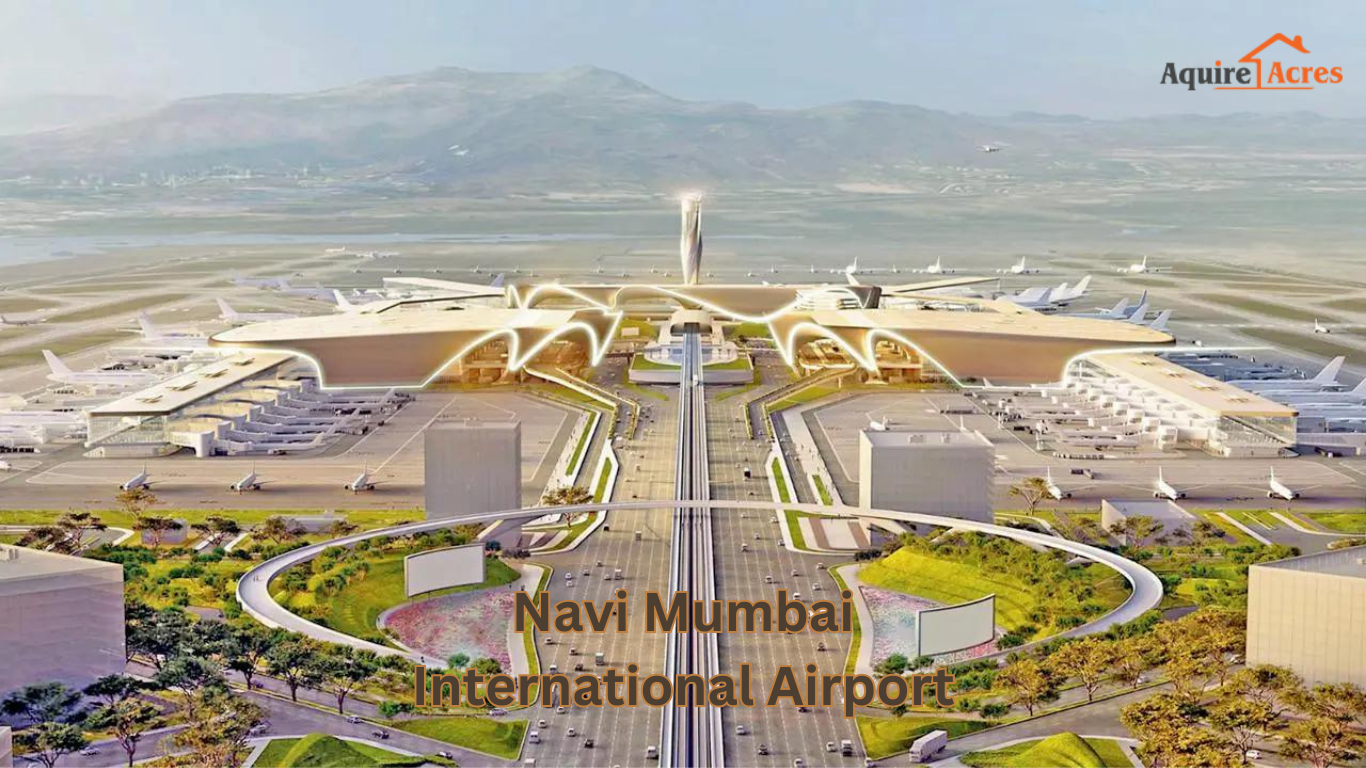
The Navi Mumbai International Airport project, overseen by the City and Industrial Development Corporation of Maharashtra (CIDCO), occupies an area spanning approximately 2,860 acres. In its initial phase, the project will focus on constructing two runways capable of accommodating up to 80 flights per hour. Situated in the Raigad district, roughly 18 kilometers east of Mumbai near Ulwe and Panvel, the project site boasts convenient proximity to the city. Additionally, a 767-kilometer Mumbai-Hyderabad high-speed rail line will link the airport to Mumbai's existing Chhatrapati Shivaji Maharaj International Airport.
Drawing inspiration from India's national flower, the Lotus, the terminal building's design promises a visually striking aerial perspective. By the year 2032, it is anticipated that the Ulwe Airport will manage approximately 2.5 million tons of cargo and cater to 9.5 crore travelers annually.
Impact on real estate
Since the project's announcement in 2018, Panvel and Ulwe have witnessed growth rates exceeding six and four percent, respectively. Moreover, there is a possibility of an additional 10-15 percent appreciation in the future. Enhanced infrastructure development and seamless connectivity from the airport to various city locales are poised to draw multinational companies (MNCs) to neighboring areas like Kamothe, Kharghar, and Taloja.
Also Read: UP Budget allocated Rs 150 cr for Ayodhya Airport expansion
Noida International Airport
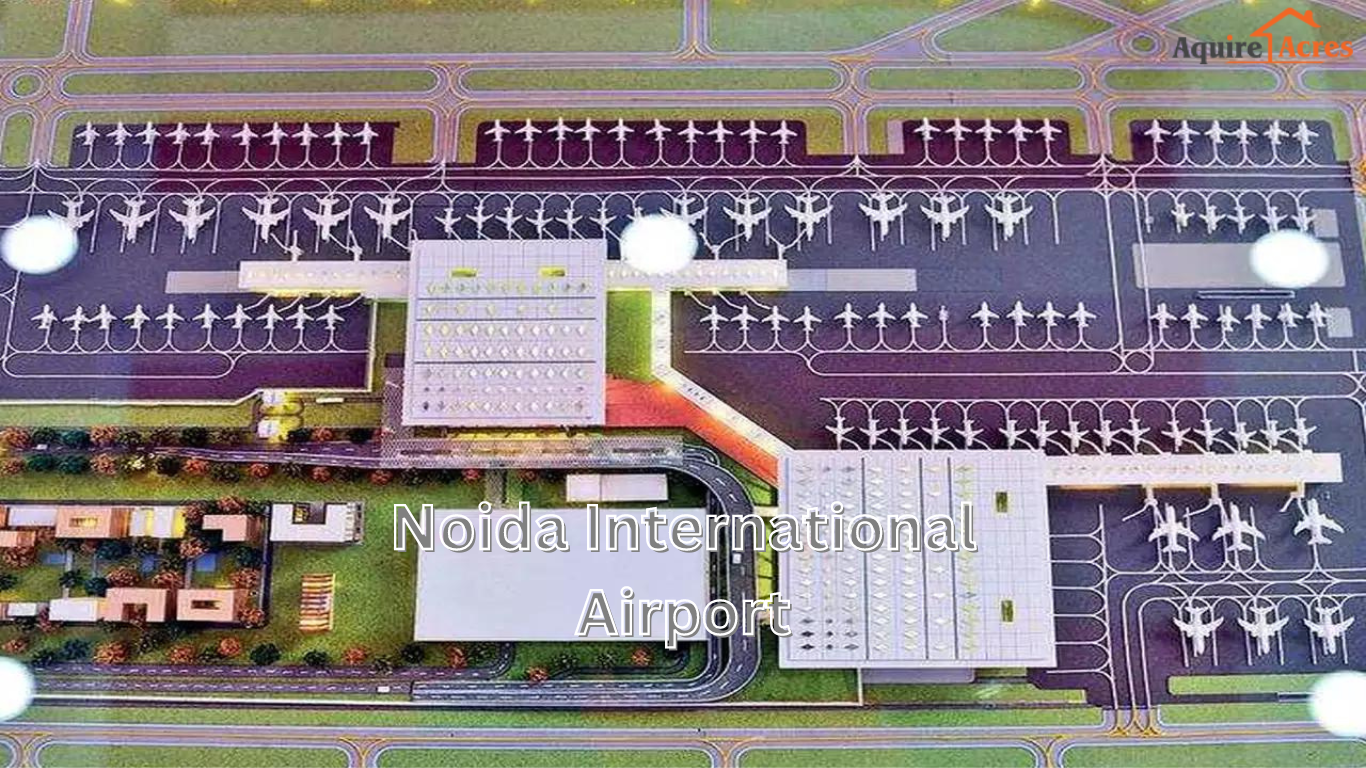
The Noida International Airport (NIA), also referred to as Jewar Airport, is designed to alleviate the high and escalating traffic burden on the Indira Gandhi International Airport in New Delhi, serving as an alternative. Positioned in the newly planned YEIDA city, the airport is envisioned to be the largest in both India and Asia, catering to the needs of the National Capital Region (NCR). Developed under a public-private partnership model (PPP), the airport's initial capacity is projected to handle 1.2 crore passengers annually, with potential expansion to accommodate 6-12 crore passengers per annum.
Connectivity-wise, the NIA will be linked with various highways in Delhi-NCR such as NH-34 and the Delhi-Ghaziabad-Meerut Expressway. Furthermore, the NHAI is underway with the construction of a 31-kilometer highway connecting Jewar Airport to Faridabad on the Delhi-Mumbai Expressway.
Impact on real estate
The Noida International Airport, Uttar Pradesh government's flagship initiative, is projected to lead to a significant surge of 30 to 40 per cent in existing land values over the next eighteen months. With anticipated improvements in regional connectivity, the airport is poised to positively influence real estate sentiments across different asset categories.
Also Read: All about Greater Noida Master Plan 2041
Aqua Line 3 of Mumbai Metro Network

The Aqua Line 3 of the Mumbai Metro, spanning 33.5 kilometers, is currently under construction by the Mumbai Metro Rail Corporation Ltd (MMRCL). This metro line will traverse the Colaba-Bandra-SEEPZ Corridor, connecting key areas including Nariman Point, Bandra, Worli, Lower Parel, and Goregaon.
This project, valued at Rs 30,000 crore, is a collaborative effort between the Government of India and the Government of Maharashtra. Funding for the project is sourced from five major entities: Mumbai Metro Rail Corporation Ltd (MMRCL), Padeco, Mumbai Metropolitan Region Development Authority (MMRDA), China Railway Engineering Corporation (CREC), and Japan International Cooperation Agency (JICA). The Mumbai Metro line is anticipated to serve over 16 lakh commuters daily, consequently reducing overall travel time and alleviating pressure on Mumbai's local train network.
Impact on real estate
Anticipated is the substantial appreciation in value for areas adjacent to Metro stations, potentially reaching up to 20 to 25 percent. Moreover, properties along the route are expected to witness an increase in rental value, with projections ranging from 15 to 18 percent.
Also Read: Delhi Metro renames its upcoming Silver Line Metro to Gold Line
Bharat Mala
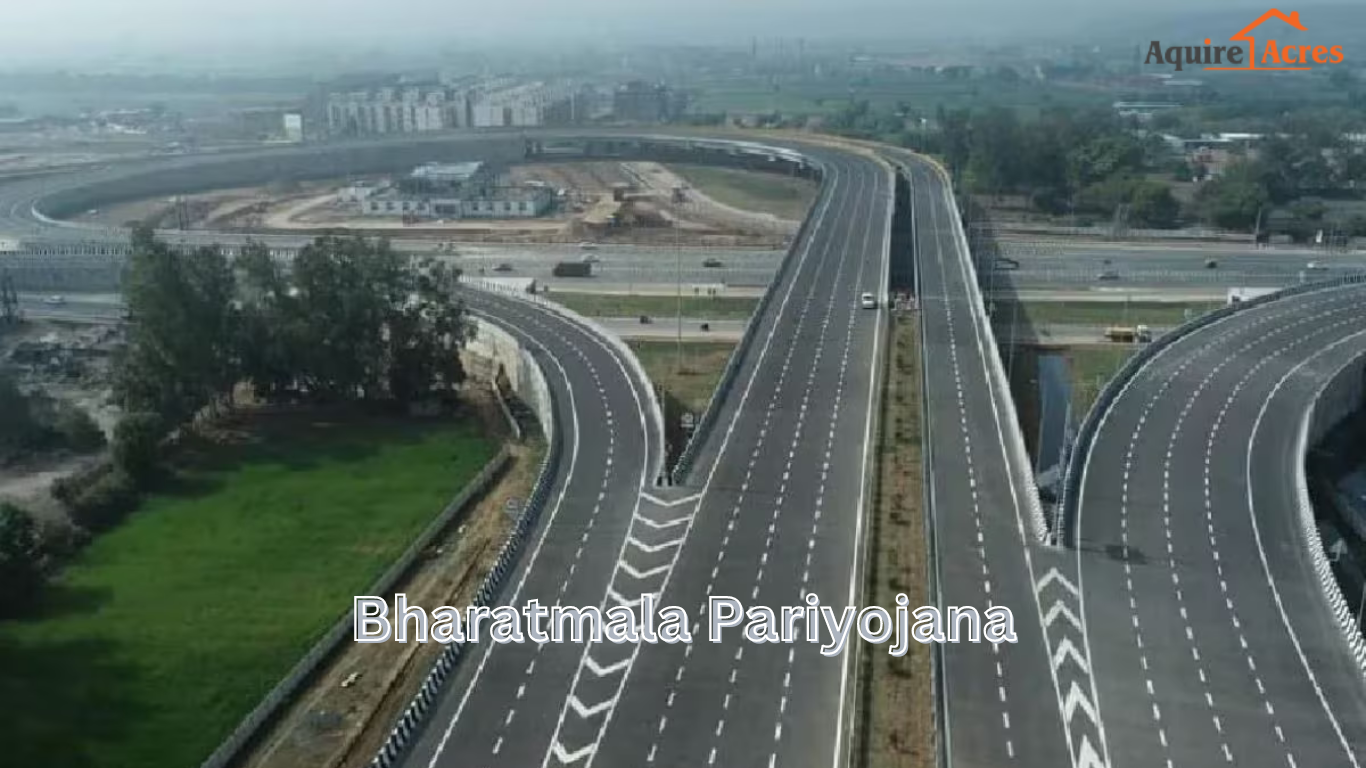
The Bharatmala Pariyojana stands as a significant infrastructure initiative undertaken by the Indian government. The primary objective of this project is to link 550 district headquarters with four-lane highways connected to National Highways. Additionally, the expressway will establish connections to 24 logistics parks, 66 inter-corridors spanning a total of 8,000 kilometers, 116 feeder routes covering 7,500 kilometers, and 7 northern Multi-Modal waterway ports. Initially estimated at Rs 5.35 trillion in 2017, the project's cost has now surged to approximately Rs 8.5 trillion.
Commencing from Gujarat and Rajasthan, the highway project will traverse through Punjab and continue its route through Jammu and Kashmir, Himachal Pradesh, Uttarakhand, portions of Uttar Pradesh, Bihar, West Bengal, Sikkim, Assam, Arunachal Pradesh, Manipur, and Mizoram.
Impact on real estate
The implementation of the Bharatmala Project is expected to enhance real estate prices in the areas adjacent to the states it traverses. The project's commencement will lead to reduced commute times, thereby stimulating demand for both residential and commercial developments. Analysts anticipate a rise in property prices ranging from 5 to 10 percent in the foreseeable future.
Also Read: How to apply for PM Surya Ghar Muft Bijli Yojana?
Delhi Mumbai Expressway
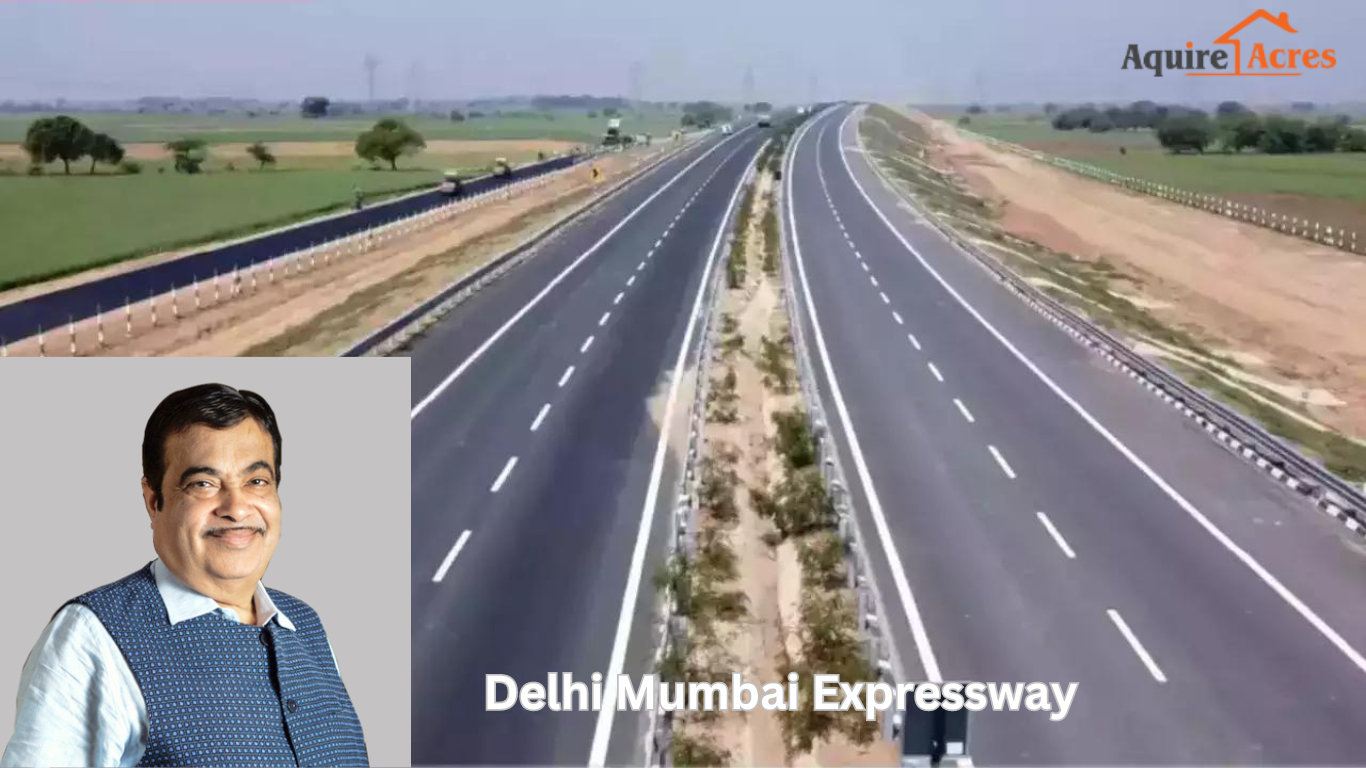
The Delhi Mumbai Expressway stands as one of India's lengthiest expressways, spanning an extensive distance of 1,386 kilometers. This expressway is set to traverse through six states, namely Haryana, Rajasthan, Madhya Pradesh, Delhi, Gujarat, and Maharashtra. Initially constructed as an 8-lane expressway, plans are underway to expand it to 12 lanes in the future, featuring 40 major interchanges facilitating connectivity to prominent cities like Kota, Indore, Bhopal, and Vadodara.
Once completed, the Delhi-Mumbai Expressway will significantly reduce the travel time between Delhi and Mumbai to just 12 hours. Furthermore, the expressway will be equipped with amenities such as charging stations and rainwater harvesting facilities, alongside an automated traffic management system.
Impact on real estate
Upon the initiation of operations on the Delhi-Mumbai Expressway, the travel duration between Delhi and Mumbai will be condensed to a mere 12 hours. This decrease in travel time is anticipated to amplify the need for both residential and commercial properties. Additionally, it will invigorate the tourism and hospitality industries.
Also Read: List of the Top 10 Upcoming Expressways in India.
Bullet Train
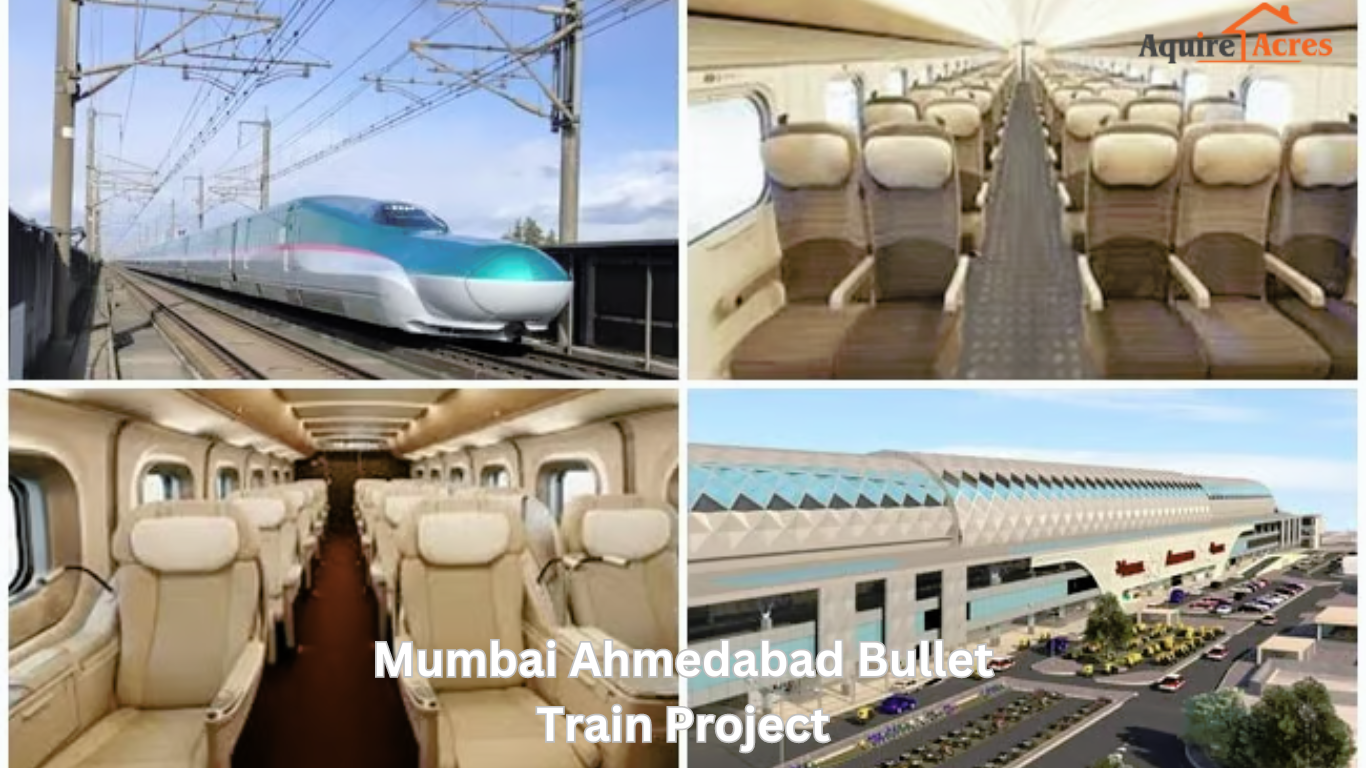
The Mumbai Ahmedabad High-Speed Rail Corridor represents India's inaugural bullet train endeavor. Its objective is to establish a high-speed railway link connecting Mumbai and Ahmedabad, boasting speeds of up to 320 km/hr. Spanning 508.09 kilometers, the corridor traverses through major cities of Maharashtra, Gujarat, and Dadra and Nagar Haveli. The railway line is slated to feature 12 stations: Mumbai, Thane, Virar, Boisar, Vapi, Bilimora, Surat, Bharuch, Vadodara, Anand/Nadiad, Ahmedabad, and Sabarmati. The total project cost, encompassing construction expenses and import duties, is estimated at Rs 1.1 lakh crore.
Impact on real estate
Following the introduction of the bullet train, property values in regions adjacent to the railway line are poised for significant growth. For example, since the bullet train's announcement, these areas have experienced a 5 to 10 percent increase in property prices. This trend is expected to continue, with prices escalating further once the bullet train commences operations.
Also Read: Varanasi Ranchi Kolkata Expressway 6 Lane E-Way To Reduce Time By 6 Hours

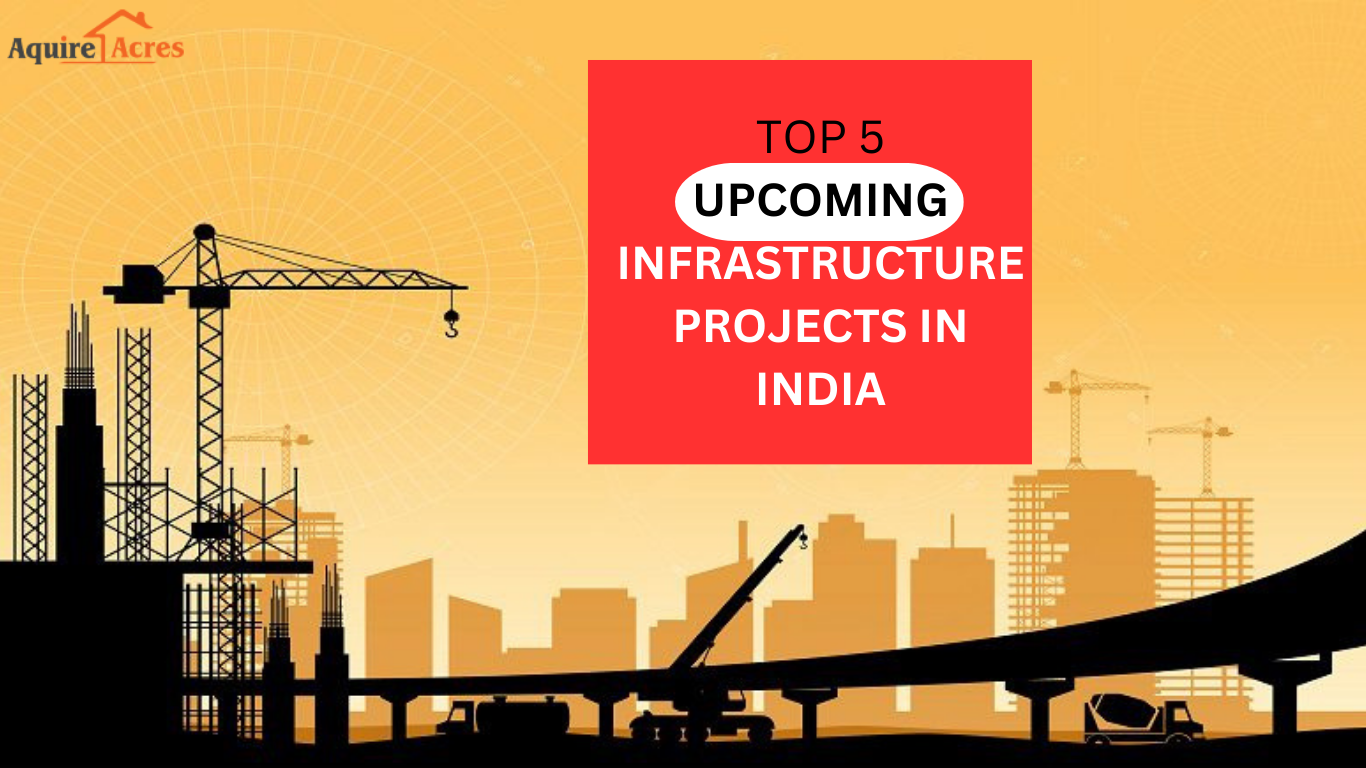
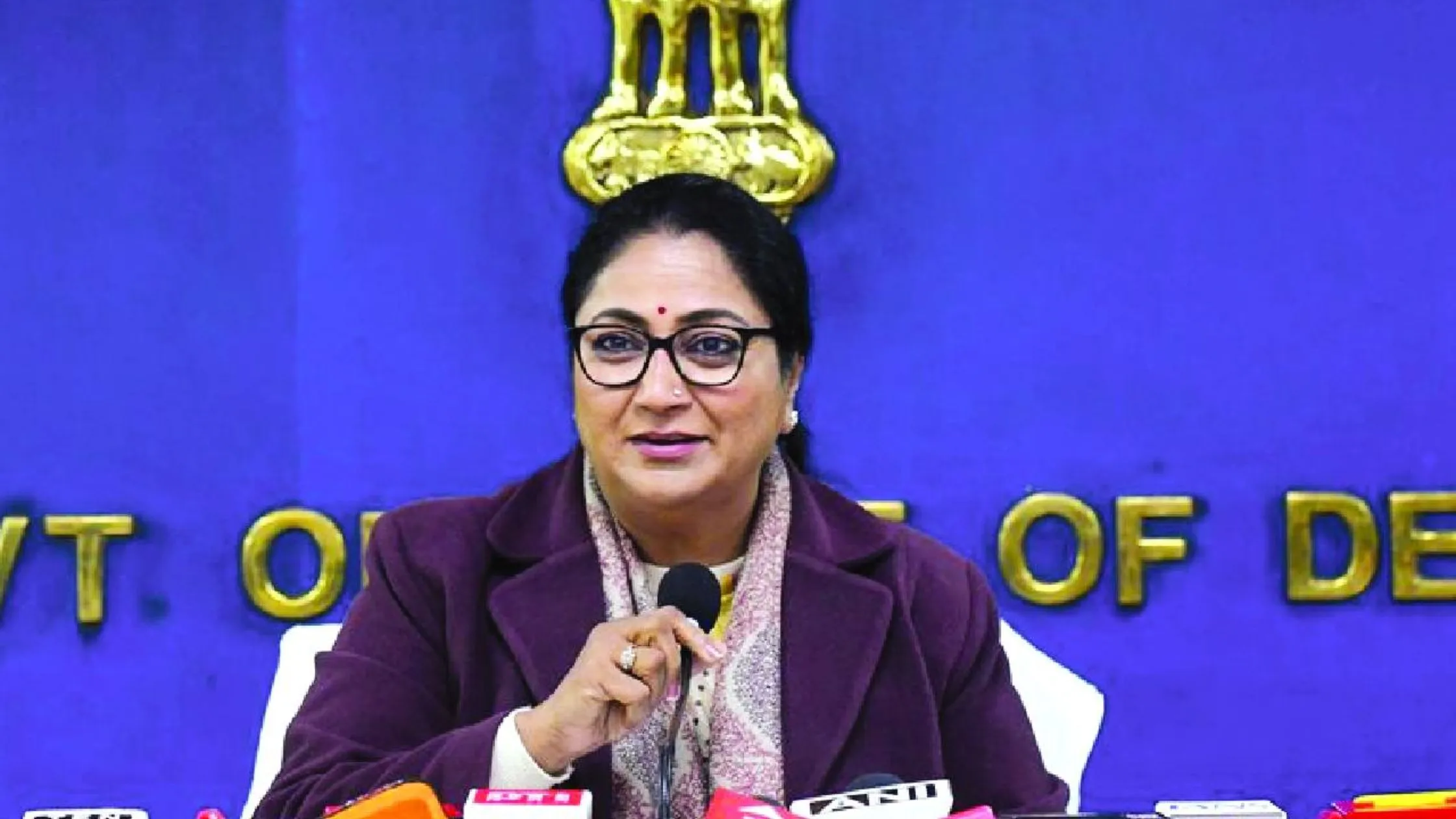
_1771224636.webp)
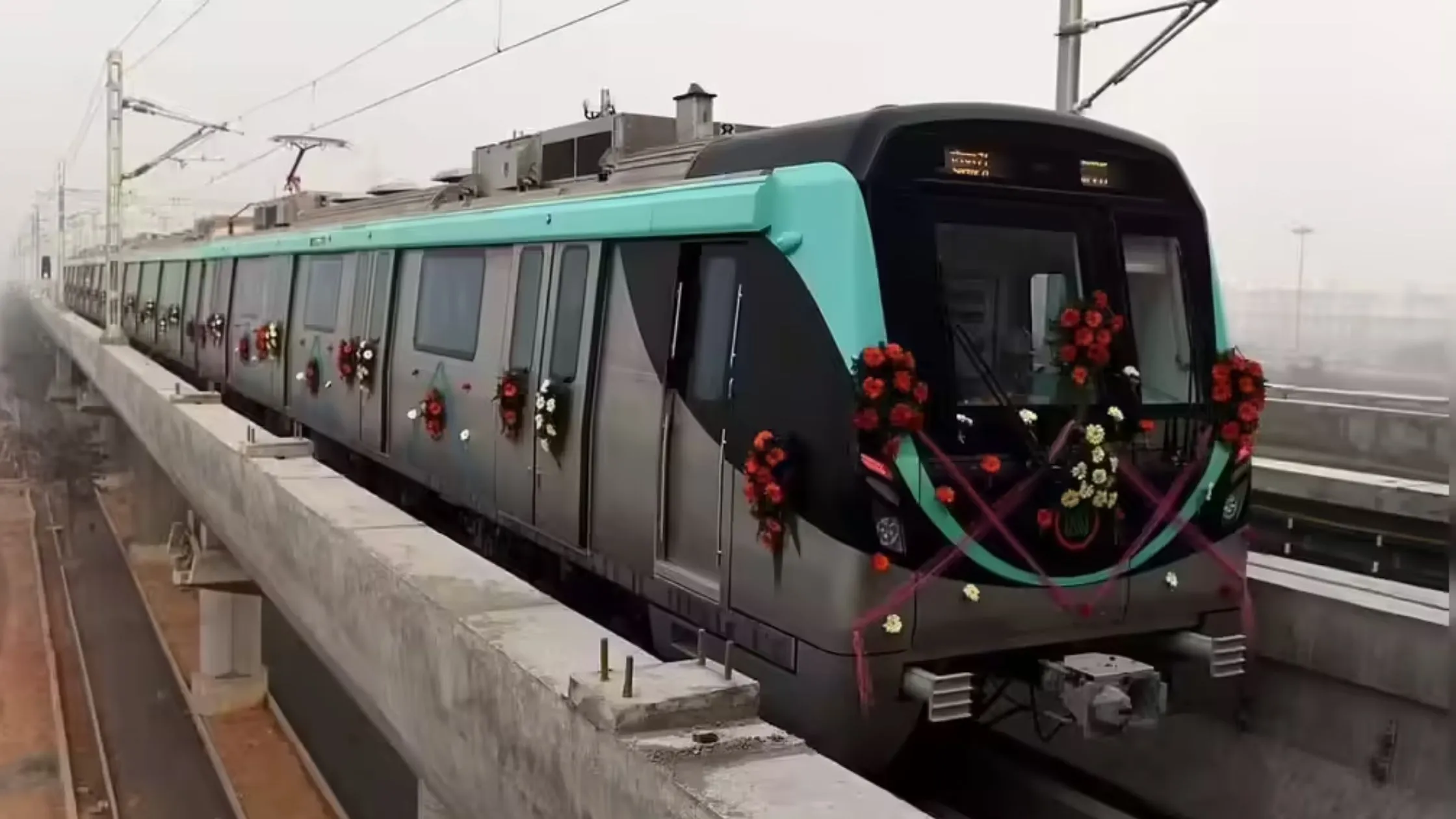


Ans 1. Jewar Airport, Mumbai Metro, Bharat Mala, and Sagar Mala are some mega projects that will boost India's infrastructure.
Ans 2. Jewar Airport, Mumbai Metro, Bullet Train, and Delhi-Mumbai Expressway are some upcoming mega projects in India.
Ans 3. Atal Tunnel, Chenab Rail Bridge, and Mumbai Trans Harbour Link are the new projects in India 2024.